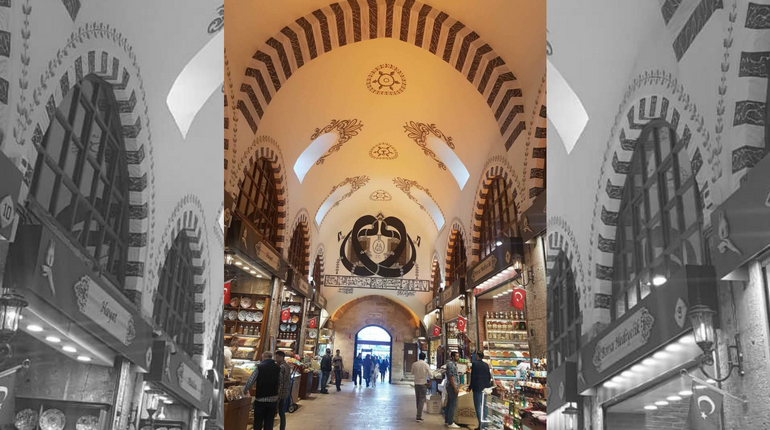Istanbul diary: Small mercies of globalisation
I thought landing in Istanbul would be an experience. It turned out to be a banal exercise. Routine and well-practised.
I reached my hotel quickly. A hotel belonging to the same chain exists in NOIDA too.
In Turkey, a narrow strip of water — the Bosphorus Strait — divides Asia from Europe.
I was amused to find later that the two sides also reflects the cultural differences between the two sides. As my guide confessed to me, alcohol is served more widely on the European side. (I had packed a bottle to be on the safe side but fortunately, my hotel was on the European side.)
The Asian side seemed older and traditional, the European more cosmopolitan.
A vague idea of India
Istanbul has a vague idea of India.
At a posh eatery near the waterfront, I met a man at lunch who spoke about the late filmmaker Raj Kapoor, and the bane of Hindi cinema.
When I enquired about the "bane", he said "length".
"Either you are a Pakistani or an Indian,” he said as we started to chat.
I wasn’t pleased. But the conversation quickly veered to vegetarian food, a big concern for my wife.
On the one hand, I savoured the moment of being identified as Indian while on the other, I was miffed for being clubbed with the Pakistanis. But then these are the small and beautiful mercies of globalisation, when it becomes difficult for the other to treat you like an alien.
'Dikkat', which means 'difficulty' or 'to stop'
The word "dikkat", which means "difficulty" in Hindi and Urdu, means "to stop" in Turkish.
The word was not alien to me. I understood what it meant. It was in front of a kebab shop and I didn’t feel too "nationalistic" about ownership of it.
Deep down, I knew that like chocolate, potato, biryani and many other things, this too came from faraway lands but we made them our own by spicing them up.
We bettered them.



Who are we, and how did we become this way?
The news on TV was filled with talk about Syrian immigrants, the Iran deal and oil. Some of it was inward-looking.
With liberalism in retreat throughout the world, "strong" leaders have emerged through the ballot box who are now asserting their economic and cultural nationalism. Turkey is one example.
Similar debates pepper the popular media in India.
Most of the debates are about who we are without understanding how we became this way because of constant interaction with the world. We are becoming insular. Inward looking.
A case in point is whether India became modern under the Marathas or the Mughals? Absolutely not. Would we have been richer without cultural interaction or poorer? Obviously poorer.
Turkey stands at the confluence of two continents. Did it become poorer by cultural intercourse or richer? Absorbing all those influences made them prosperou.
Though their transition to modernity was preceded by the collapse of the Ottomon empire, a nation with a wider worldview was already shaping up under Ataturk.
Today, debate in India is only about who we are.
Who are we? What makes us a nation? Is it culture or constitution?
The debate continues.
The debate is polarising and insular.
Despite nations being the most workable system, they are not cast in stone. They can wither away.
Indebted to globalisation
So, to not be treated as an alien in Istanbul, I truly felt indebted to globalisation.
Today, globalisation is a maligned word. In this world of economic and cultural nationalism, it was good to be culturally acknowledged and accepted as different.
With all due respect, Istanbul's Spice Market looked like an upgraded version of Palika Bazar but the fact that 10 percent of the shopkeepers there knew Hindi was good enough for me.
In an ever-changing world, we are becoming more and more culturally insular. Our quest is not to discover the other but to find sameness in a faraway land.
At a time like this, if India turns insular, then it should not aspire to be a world leader.
More initiatives were taken under a Nehru when India’s economy counted for nothing on the world stage.
The question to be debated is whether political and cultural insularity will help India?
Doesn’t this country need to be intellectually connected with wider world issues, rather than worrying about who we are, who we were and what are the purest elements of the Indian identity.

)